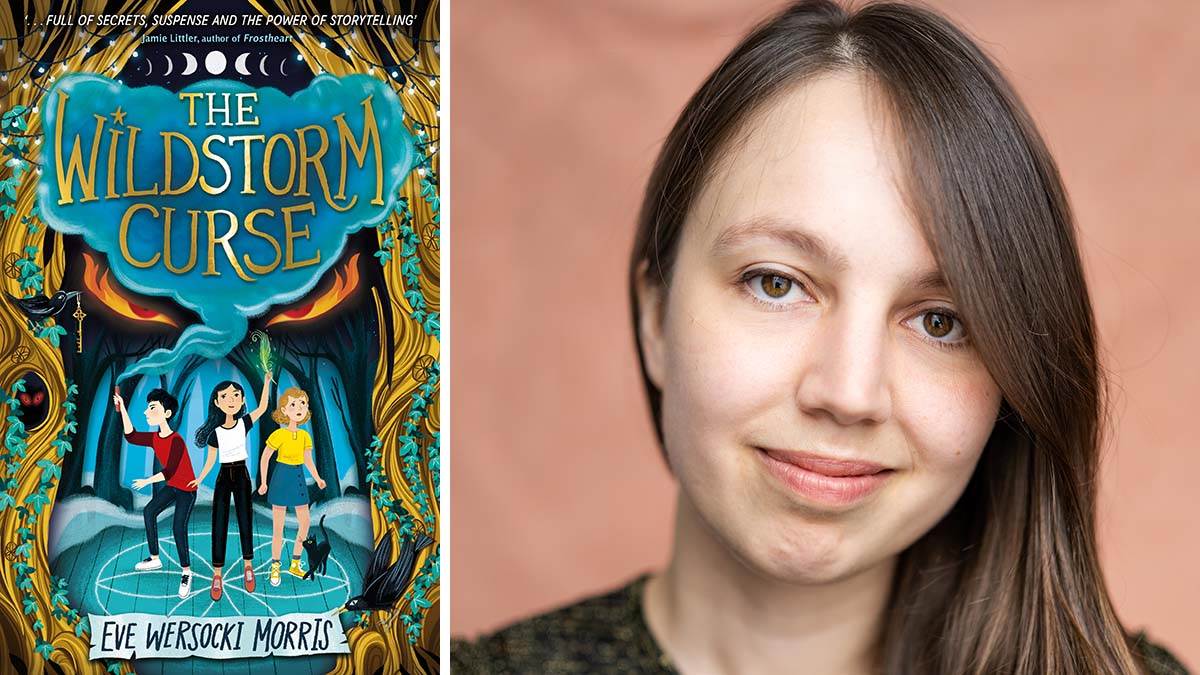6 tips to get dyslexic children writing creatively
Published on: 06 October 2023
Author Eve Wersocki Morris, who is dyslexic herself, shares her top tips for creative writing.

In celebration of Dyslexia Awareness Week, I've put together six suggestions on how to encourage dyslexic children to start writing their own stories.
These tips aren't necessarily just for children with dyslexia and hopefully they can help anyone who lacks confidence with creative writing. Dyslexia should never stop children from being storytellers. In fact, I don't think I would be an author if I wasn't dyslexic, because I wouldn't be me without my own unique ideas.
1. Don't make a big deal about spelling
When you're giving feedback on a story or piece of creative writing try not to focus on the spelling – do correct spelling, but you don't need to dwell on it. A dyslexic child knows they're bad at spelling - you don't need to spell it out!
There's a moment in my latest book The Wildstorm Curse when Kallie - the dyslexic heroine who wants to be a playwright - shares a story she's written with her new friend Emilia. She's terrified that Emilia is going to comment on her spelling and bad handwriting – but the lovely Emilia tells her, 'Who cares about spelling when you're taking people on an adventure?'
2. Talk about the big picture stuff!
From my own experience and talking to other dyslexic writers, we're very good at big picture ideas – we can see the overall plot, where we want the characters to end up, and the thrilling twists and turns along the way – so consider talking over a story or short piece of writing before a child starts writing it.
Once they've told you their big ideas, see how you can break them down together into manageable sections to write. Getting enthusiastic about the story is key – words are tricky and can trigger a lot of anxiety, but once you're armed with exciting ideas those words are a lot more manageable.
3. Get inspired by comic books and graphic novels
From The Adventures of Tintin in primary school to Posy Simmonds' Gemma Bovery as a teenager, I loved flicking through graphic novels (mostly ignoring the words) and thinking about the story. I would spend hours copying the drawings whilst listening to an audiobook.
Why not encourage children to create their own graphic novels or comic strips so they can tell stories with fewer words? Or suggest they storyboard an idea before they write it – I sometimes do this when I'm struggling to describe a scene or a character.
4. Don't ban spell check
Even when I'm writing something by hand, it is really reassuring to have my phone or laptop nearby so I can double-check the spelling or meaning of a word. I often search online for words to check I've got the right one when I'm writing my books today. Plus the act of copying out a correctly spelt word can be helpful for remembering it in the future.
I know this is tricky for assessed work, but it can give young writers a lot of confidence. Don't let children feel guilty for using a technology which is so incredibly helpful for people who struggle with spelling.
5. Ask them to read their story aloud
One of the greatest joys of being a writer is sharing your stories with others. Reading aloud can be scary when you're dyslexic but when I was younger, I often found that the enjoyment of entertaining friends or family with a funny or scary story would override the nerves of reading – plus when you're reading your own work you don't need to worry about spelling or handwriting and you can change it as you go along. And the applause and praise which follow a dramatic reading can give reluctant writers more confidence for future storytelling sessions!
6. Get them to write something for themselves every day
I have kept a diary since I was 14 and it's a great way to practise how to present a story (even if that story is about who sat next to you at lunch and the top ten things you hate about school jumpers). Diaries are, by their nature, private so spelling and handwriting doesn't matter. It also helps to get into a writing routine outside of school.
If you need help inspiring children to write a diary why not read (or listen to) some books featuring diaries. My personal favourite was Angus, Thongs and Full Frontal Snogging by Louise Rennison – for young readers there is Diary of A Wimpy Kid by Jeff Kinney or the Lottie Brooks series by Katie Kirby.
The Wildstorm Curse by Eve Wersocki Morris is out now.
Check out Eve's tips for getting children with dyslexia hooked on reading





